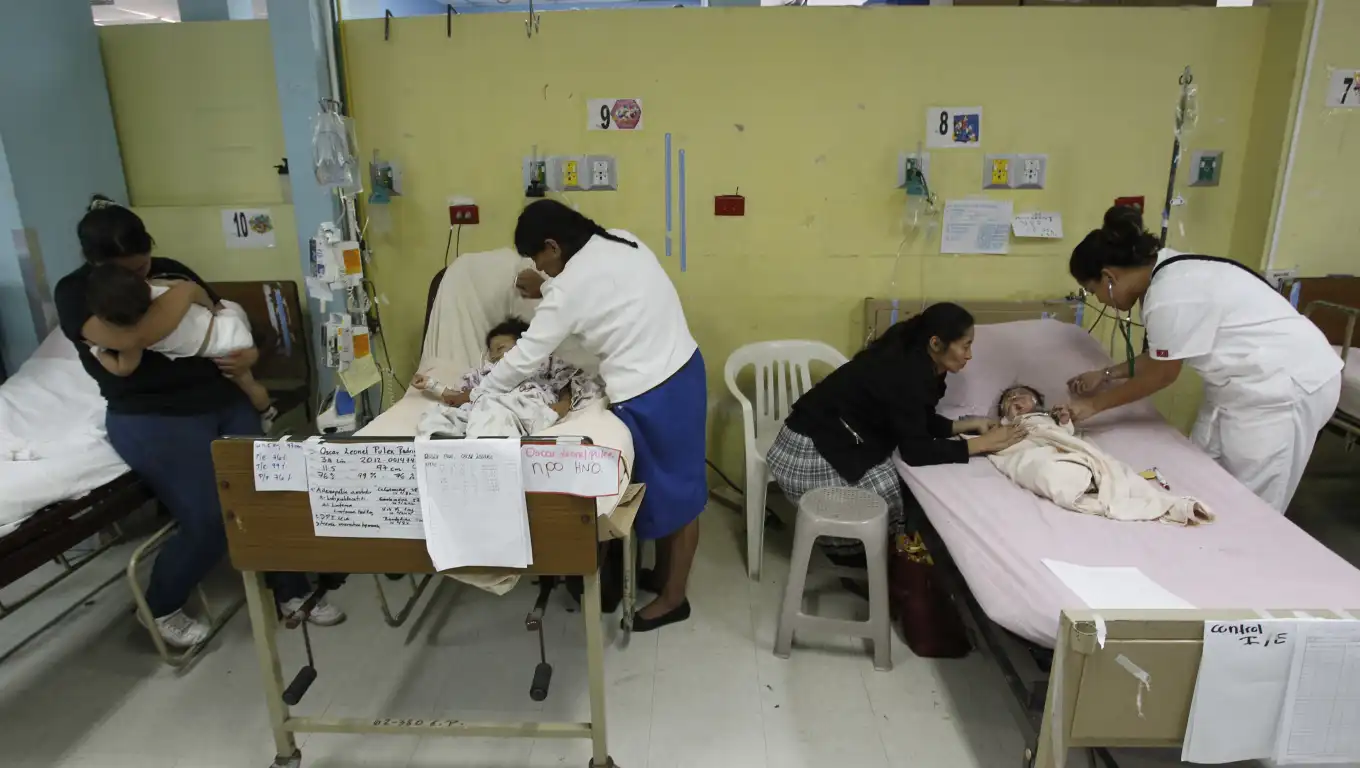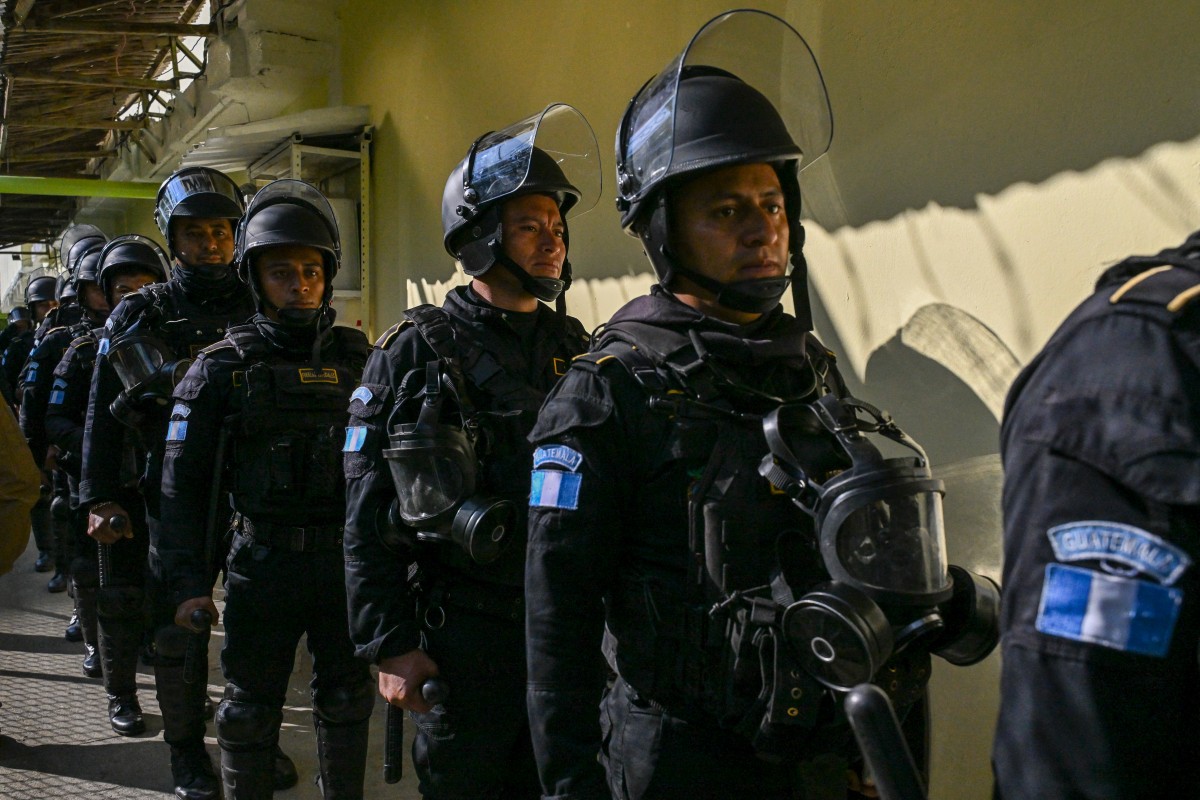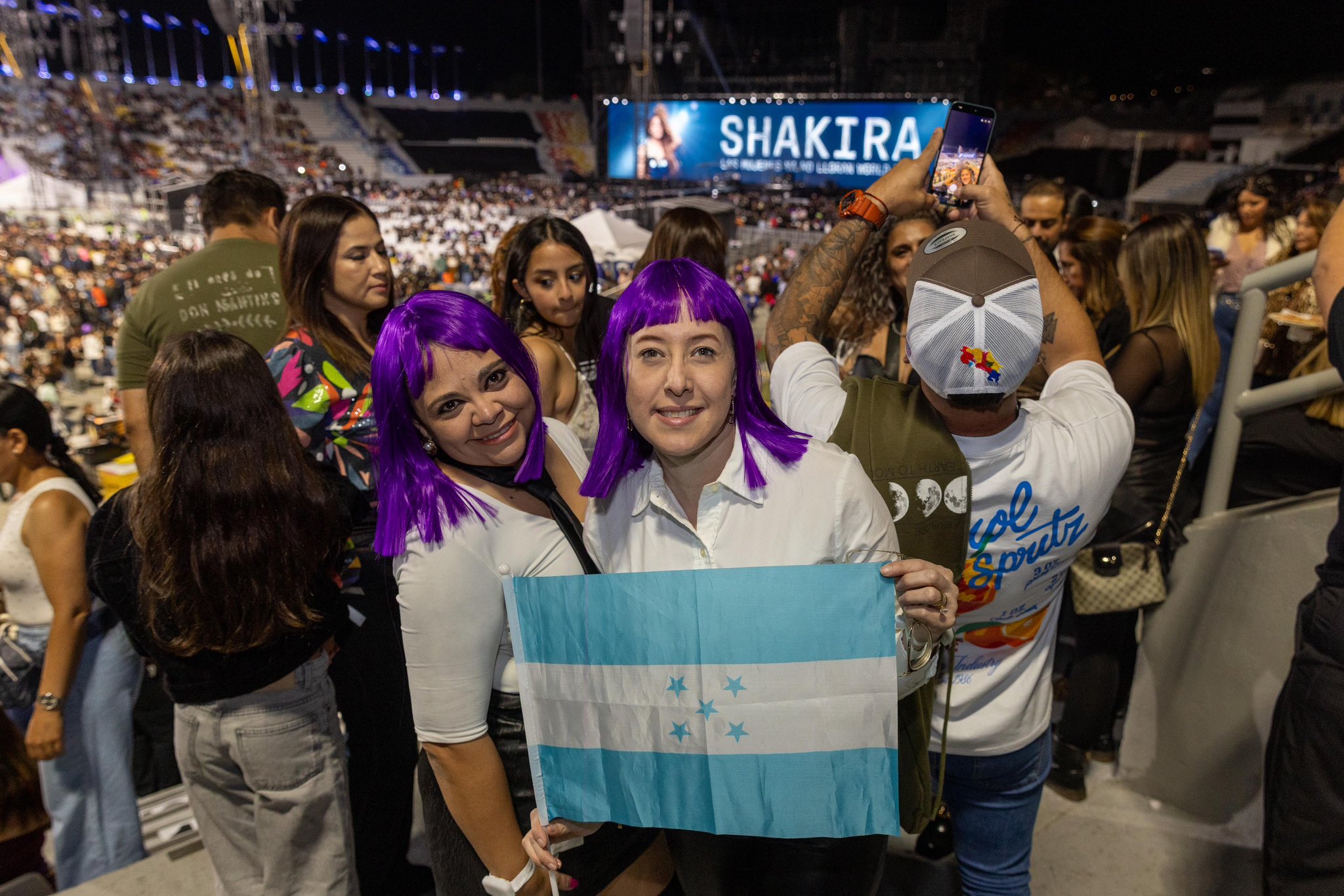Central America
Honduran judge grants extradition of ex-president Hernandez to US

AFP
A judge in Honduras granted the extradition of former president Juan Orlando Hernandez to the United States, where he is wanted for alleged drug trafficking, the Central American country’s Supreme Court of Justice said on Twitter.
A judge “decided to accept the request for extradition presented by the Court of the Southern District of New York against ex-president of the republic Juan Orlando Hernandez Alvarado,” the court said Wednesday.
The decision can still be appealed within three days of its writing, judiciary spokesman Melvin Duarte said, in which case the Supreme Court’s panel of justices would weigh in.
The former president, who held office from 2014 to 2022, is accused of having facilitated the smuggling of some 500 tons of drugs — mainly from Colombia and Venezuela — to the United States via Honduras since 2004.
US prosecutors have alleged Hernandez, 53, received millions of dollars from drug traffickers for protection — including from Mexican narco-kingpin Joaquin “Chapo” Guzman.
He faces three charges: conspiracy to import a controlled substance into the United States, using or carrying firearms including machine guns, and conspiracy to use or carry firearms.
New York prosecutors linked the former president to the crimes during the trial of his brother, former Honduran congressman Tony Hernandez, who in March 2021 was sentenced to life in prison in the United States for drug trafficking.
Hernandez’s lawyers claimed the “United States has not sent any sufficient and irrefutable evidence” linking the former president to drug-trafficking.
But Duarte said that only a “minimal burden of proof” was required to approve extradition requests
Hernandez, a right-wing lawyer, departed office on January 26 when leftist Xiomara Castro became president.
Before his eight-year presidency, Hernandez had led the country’s Congress, taking a pro-US stance and supporting Washington’s fight against drug trafficking.
“Today is a very sad day for our family… I repeat to the whole world and all of Honduras, my husband is innocent, he is a victim of a conspiracy and the vengeance of drug-traffickers who were once extradited from this country,” said Hernandez’s wife Ana Garcia.
She said those drug-traffickers were striking plea bargains by implicating Hernandez.
Controversy has never been far away from Hernandez since he entered politics.
Re-election is banned by the Honduran constitution, but Hernandez was allowed to stand for a second consecutive time in 2017 following a ruling by the Supreme Court.
His subsequent victory, after initially trailing opponent Salvador Nasralla by five percentage points with more than half of the votes counted, sparked accusations of fraud.
He has been held in custody since surrendering to police on February 15, a day after Washington requested his extradition.
Wearing a smart suit, Hernandez arrived at court surrounded by a contingent of special forces police, who also accompanied him back to prison after his hearing.
Central America
Guatemala to Phase Out Longstanding Medical Cooperation Agreement with Cuba

Guatemala’s government announced on Tuesday that it will end this year a cooperation agreement with Cuba that has brought doctors from the Caribbean nation to work in the Central American country.
Guatemala’s Health Ministry told EFE that the program, which has been in place for nearly three decades, will be phased out progressively throughout 2026.
According to the same source, there are currently 412 Cubans in Guatemala under the agreement, including 333 physicians.
Cuban medical brigades assigned to Guatemala have traditionally been deployed to various regions of the country to provide primary health care to local communities.
“The decision follows a technical assessment aimed at strengthening the sustainability of the national workforce and consolidating the public health system’s own capacities,” the Guatemalan ministry said.
Earlier this week, lawmaker Sonia Gutiérrez, from the left-wing Winaq party, warned that the move “could be an inhumane act that threatens the health and lives of the country’s most vulnerable populations,” given the historic importance of Cuban doctors in providing medical care.
For that reason, the legislator summoned Health Ministry authorities to Congress, as permitted by law, to provide further details about the decision.
Former human rights ombudsman Jordán Rodas Andrade also weighed in on social media, recalling that “for 27 years Cuban doctors have been the backbone of health care in Guatemala’s most neglected areas,” and stressing that “ending this agreement is an act of ingratitude that leaves the most vulnerable unprotected.”
President Bernardo Arévalo’s government told EFE that, in order to guarantee continued care, it will implement a gradual replacement plan that includes hiring national personnel.
Central America
Guatemala isolates Barrio 18 leader after attacks that killed 11 police

Guatemalan authorities have placed a leader of the Barrio 18 gang in an isolated cell without الكهرباء or “privileges” after he was accused of triggering a recent wave of violence that left 11 police officers dead, the government said on Sunday.
Members of Barrio 18, which is designated as a “terrorist” organization by both the United States and Guatemala, carried out the killings on January 18 in retaliation for the government’s takeover of three prisons that had been under the control of inmates linked to the group.
In response to the attacks, President Bernardo Arévalo declared a month-long state of siege, arguing that gang members were seeking better conditions in prison or transfers to lower-security facilities.
In a message posted on X alongside photographs, Arévalo announced the isolation of Aldo Dupie, also known as “El Lobo,” one of the gang leaders who allegedly directed the uprisings.
Images released by the government show Dupie inside a small cell with narrow windows, built from metal containers, in a secured area of the Renovación I prison in southern Guatemala — the same facility where the hostage-taking riot took place.
With a shaved head and a stern expression, the gang leader appears alone and in handcuffs, according to the photographs.
Guatemala’s prison system said the “new area,” protected by metal fencing and barbed wire, will house high-risk inmates who will remain without privileges or electricity.
Sports
Shakira ignites El Salvador with near sold-out residency at Mágico González Stadium

The recently renovated Jorge “Mágico” González Stadium is rolling out the red carpet for Colombian superstar Shakira, whose string of concerts has sold out almost entirely, confirming the powerful bond between the artist and Salvadoran fans.
The scale of the experience begins as soon as attendees arrive at the venue. Outside the stadium, organizers have installed several photo spots so concertgoers can capture a souvenir from the major event.
Fans attending the Las Mujeres Ya No Lloran World Tour will witness a top-tier visual production, where technology and robotic lighting effects will shape an atmosphere that shifts dramatically from one segment of the show to another — moving from the intensity of ’90s rock to the festive explosion of urban pop.
Security and crowd management have been top priorities, with a coordinated operation aimed at ensuring smooth entry and exit, allowing spectators to focus solely on enjoying hits that have defined generations.
Beyond the music, the event marks a milestone for the country’s live-entertainment industry, positioning El Salvador as a destination capable of hosting artist residencies once reserved for cities such as Las Vegas or London.
The excitement is already visible across the capital: hotels are at full capacity and local businesses are riding the wave of enthusiasm sparked by the latest songs from the Colombian star.
-

 Central America5 days ago
Central America5 days agoGuatemala isolates Barrio 18 leader after attacks that killed 11 police
-

 International3 days ago
International3 days agoU.S. Health Department says CDC grants no longer match agency priorities
-

 International2 days ago
International2 days agoOver 50 Civil Groups Urge House to Impeach DHS Secretary Kristi Noem
-

 Central America2 days ago
Central America2 days agoGuatemala to Phase Out Longstanding Medical Cooperation Agreement with Cuba
-

 International3 days ago
International3 days agoDespite homicide drop, overall deadly violence remains high in Mexico: study
-

 International3 days ago
International3 days agoICE Arrests Reach 379,000 Under Trump, Testimony Shows Amid Minnesota Shootings
-

 International3 days ago
International3 days agoMEPs Approve Plan That Could Fast-Track Rejection of Some Asylum Claims
-

 International3 days ago
International3 days agoSheinbaum Urges Mexico to ‘Jealously’ Guard Sovereignty at Air Force Anniversary
-

 International3 days ago
International3 days agoJet Fuel Crisis Hits Cuba: Flights Disrupted, Air Canada Cancels Services
-

 International2 days ago
International2 days agoNew York’s New Archbishop Names Óscar Romero as His Favorite Saint
-

 International15 hours ago
International15 hours agoHead-of-state diplomacy key to guiding China–U.S. ties, Beijing says
-

 International3 days ago
International3 days agoMexico Rises Slightly to 141st in Global Corruption Perceptions Index 2025
-

 International16 hours ago
International16 hours agoTrump administration to end special immigration operation in Minnesota
-

 International15 hours ago
International15 hours agoFlorida judge sets 2027 trial in Trump’s $10 billion lawsuit against BBC
-

 International2 days ago
International2 days agoExclusive Tucson Neighborhood Shaken by Disappearance of Savannah Guthrie’s Mother
-

 International3 days ago
International3 days agoChile Unveils Latam-GPT to Give Latin America Its Own AI Model


























